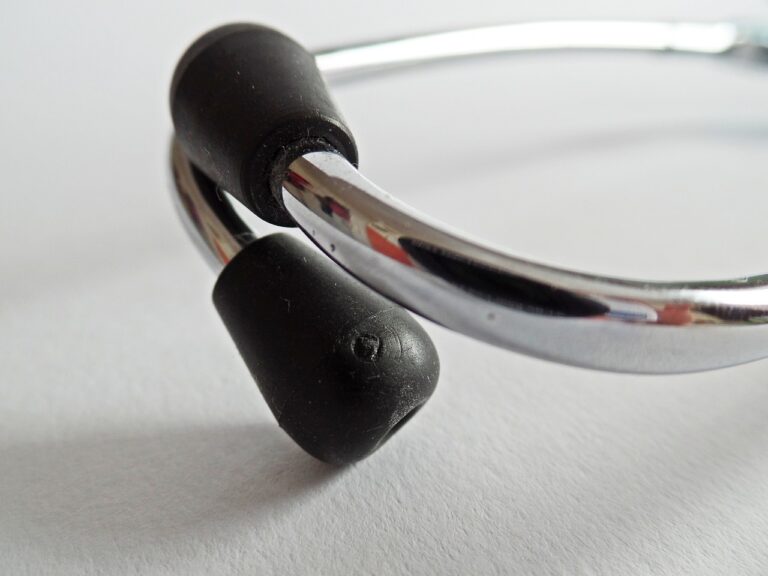Advancements in Wearable Devices for Bipolar Disorder Monitoring: Tracking Mood Swings and Sleep Patterns
Bipolar disorder is a complex mental health condition characterized by extreme shifts in mood, energy levels, and activity levels. Individuals with bipolar disorder experience episodes of mania, during which they may feel elated, euphoric, and full of energy. Conversely, individuals also go through depressive episodes, marked by feelings of sadness, hopelessness, and low energy.
The unpredictable nature of bipolar disorder can significantly impact an individual’s daily life, relationships, and overall well-being. It requires ongoing management and treatment to help individuals stabilize their moods and lead fulfilling lives. Without proper care, bipolar disorder can lead to difficulties in functioning at work, school, and in social situations.
Understanding Mood Swings in Bipolar Disorder
Mood swings are a hallmark symptom of bipolar disorder, characterized by extreme fluctuations in mood and energy levels. Individuals with bipolar disorder can experience intense periods of mania, where they feel euphoric, energetic, and impulsive. During depressive episodes, they may feel hopeless, lethargic, and have difficulty concentrating. These mood swings can range from mild to severe and can significantly impact daily functioning and quality of life.
It is crucial to understand that these mood swings are not just a result of temporary stress or moodiness, but are a fundamental aspect of the neurological and biochemical imbalances in the brain seen in bipolar disorder. The shifts between mania and depression can occur gradually or suddenly, lasting for days, weeks, or even months. Recognizing the patterns and triggers of these mood swings is essential for effective management and treatment of bipolar disorder.
The Importance of Monitoring Sleep Patterns
Establishing a consistent routine of monitoring sleep patterns is crucial for individuals with bipolar disorder. Sleep disturbances often serve as early warning signs of impending mood shifts, making it imperative to track sleep quality and quantity daily. Disruptions in sleep can exacerbate symptoms of mania or depression, underscoring the need for vigilance in observing any modifications in sleep patterns.
By maintaining a sleep diary and logging details such as bedtime, wake-up time, and overall sleep satisfaction, individuals can gain insight into their unique sleep patterns and identify trends that may influence their mood stability. Recognizing the interplay between sleep and mood can empower individuals to take proactive measures in managing their mental health effectively. Monitoring sleep patterns not only aids in anticipating mood swings but also facilitates the development of personalized strategies to promote restful and rejuvenating sleep.
How can monitoring sleep patterns help individuals with bipolar disorder?
Monitoring sleep patterns can help individuals with bipolar disorder identify any disruptions or irregularities in their sleep, which can trigger mood swings or episodes. By tracking their sleep patterns, individuals can work with their healthcare provider to create a more stable routine that promotes better mental well-being.
What are some common signs of disrupted sleep patterns in individuals with bipolar disorder?
Common signs of disrupted sleep patterns in individuals with bipolar disorder include difficulty falling asleep, waking up frequently during the night, and feeling tired or unrested upon waking. These disruptions can contribute to mood instability and exacerbate symptoms of bipolar disorder.
How often should individuals with bipolar disorder monitor their sleep patterns?
It is recommended that individuals with bipolar disorder monitor their sleep patterns on a daily basis. By consistently tracking their sleep habits, individuals can identify any patterns or triggers that may be impacting their mental health and work towards establishing a more stable routine.
Are there any tools or apps available to help individuals monitor their sleep patterns?
Yes, there are several tools and apps available that can help individuals monitor their sleep patterns. These tools often track the quality and quantity of sleep, as well as provide insights into sleep trends over time. Some popular sleep tracking apps include Sleep Cycle, Fitbit, and Pillow.
How can healthcare providers use information about sleep patterns to better support individuals with bipolar disorder?
Healthcare providers can use information about sleep patterns to better understand the individual’s unique triggers and vulnerabilities. By examining trends in sleep quality and quantity, providers can tailor treatment plans and interventions to address specific sleep-related issues that may be contributing to mood instability or episodes of bipolar disorder.







